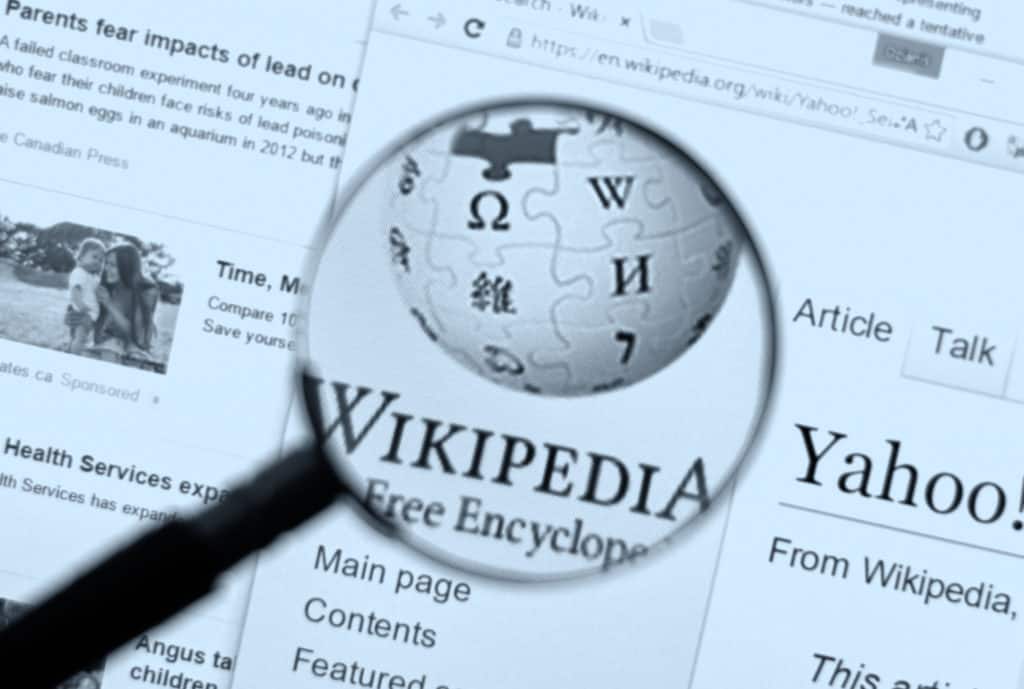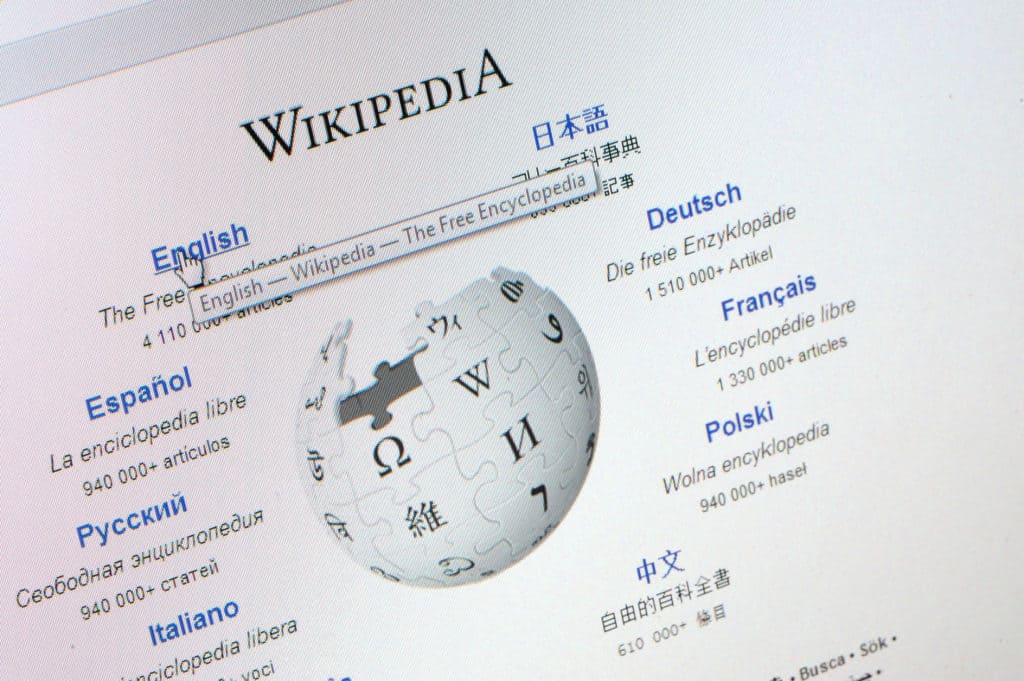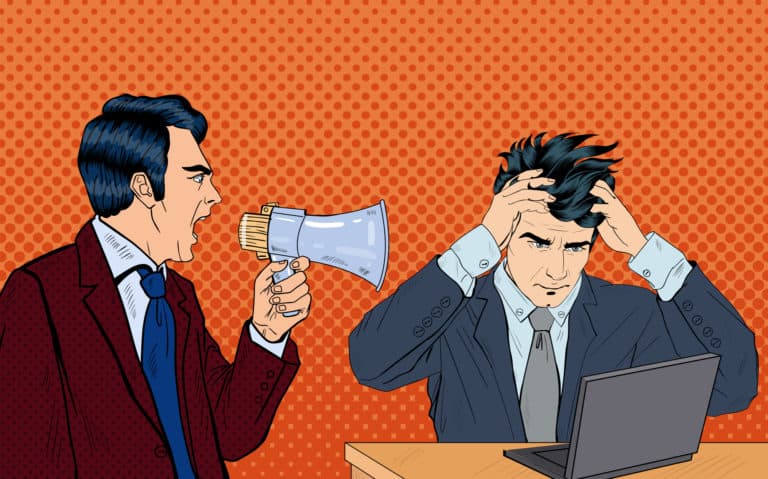
Trying to utilize Wikipedia as part of your SEO campaign can be risky. You must tread carefully and be 100% sure that your company is notable enough to warrant a Wiki page.
As an online resource, Wikipedia reigns with the sort of authority reserved for third-world dictators. And like any tinpot dictator, if you don’t abide by the rules, Wikipedia will punish you with enough force that crime scene investigators will need to piece you back together.
As a heavyweight champion of the SERPs pages, Wikipedia ranks for nearly 50% of all searches. To give you the scale of such an achievement, that’s the equivalent of Meghan Markle’s lies appearing in 50% of the world’s publications. Oh, wait…
However, Wikipedia has to adhere to the rules of Google’s algorithms, just like everyone else. And they really don’t want you abusing their well-gained status as the ‘motherload of resources’ in pursuit of easy-win digital marketing. It goes against the grain.
As such, the volunteers at Wikipedia will promptly dismiss your efforts at creating a Wikipedia page for your business without due cause, scrumple up your efforts, and blacklist you with lightning speed.
Suppose they catch you manipulating their system for profit. In that case, you’ll find that Wikipedia gathers all of the online search engines together for a slap down of epic proportions. You’ll be lucky to escape with only light bruising.
Not to say that you can’t work with Wikipedia as part of your SEO and digital marketing strategy. However, it must be done properly and in accordance with Wikipedia’s guidelines. Here’s what you need to know.
Wikipedia’s Stance on Self-Promotion and Publicity

Here’s the big lesson for the day. Wikipedia is not a promotional medium.
If you are planning for self-promotion, product placement, or autobiographical-ego stroking through a Wiki page, then you will be hunted down and shot.
Paid material is an absolute no-no.
If you want to ignore our advice and instead plunge forward and try to place self-promotional material within the Wikipedia camp, then we won’t stop you. However, you’ll only do yourself an injustice. There are plenty of places online to gain publicity, but Wikipedia is not the correct medium.
Wikipedia works on notability. It’s not a business citation resource. You will become a digital wiki-sponsored pariah for using any Wikipedia page as a platform for publicity. As a public forum, Wikipedia is fiercely guarded by its volunteer editors. And they can get quite stabby.
In their own words, ‘independent sources are also needed to guarantee a neutral article can be written‘.
Even materials that aren’t promotional or self-published – such as technical manuals that accompany a product or service – are not considered evidence of notability.
You may feel that this is harsh, but company documents are not measuring the subject’s attention, recognition, or cultural standing.
Conflicts of Interest on Wikipedia

The good people at Wikipedia operate with incredibly strict guidelines when it comes to conflicts of interest. Basically, you will be caught and trialled (and possibly executed by firing squad) if the Wiki StormTroopers discover you have a close connection with the topic you are writing about.
So, what does that mean in this instance? I’m so glad that you asked, because this is where most people encourage the Wiki wrath.
You cannot write about your own company (or, indeed, yourself), as that would be defined as a conflict of interest. In fact, you can’t write anything in which you derive a position for personal benefit from content, images, or backlinks on a Wiki page.
This rule may seem strict, but Wikipedia is not a platform for digital marketing. Wikipedia is effectively an online library. The platform is commonly viewed as the online information source. It’s accessible to anyone with an internet connection and remains unbiased and judgement-free over all subjects. Using a Wiki page as blatant cost-free advertising is not acceptable behaviour.
Wikipedia is the ultimate historical observer. And by trying to gain personal benefit from its good intentions, public access, and unbreakable mantra, you go against the code. Abusing Wikipedia is like trying to manipulate the content within Americana’s national library in a bid to change recorded history, to paint yourself in a better light.
While there is no law to prevent you from editing or creating an article page in favor of your business, the article won’t last long. As soon as someone at Wiki HQ discovers your activity, your writing will be tagged and deleted. All while the editor tracks your IP address and lovingly sends you an Assassin-o-gram.
This will then start a ripple effect where future contributions to Wikipedia may become frozen, and your account could be investigated. Don’t think you can keep creating new accounts to then retry your efforts, either. Once Wikipedia sullies your business name, you are time-stamped and dumped into the status chamber; never to return.
Wikipedia Will Hurt You If…

…you try to pull a smart one. You may think it’s a great idea to slap your website URL into relevant Wiki page content. You may think it’s easy to insert a link to your website across some anchor text. ‘Why hasn’t everyone done this already?‘, we hear you guffaw before publishing your edits.
That’s because Wikipedia is now coming to inflict digital pain as you’ve never experienced before. And it’s bringing a Dr Kaufman torture kit for maximum effect.
By sticking your URL into public content, you are effectively spamming everyone. And nobody likes spam. Not even spammers like spam. Wikipedia certainly does not enjoy removing your spam. In fact, Wikipedia will grow to hate you with such ferocity that your URL will become blacklisted and cannot be added to anything – whether legit or not – in future.
Wikipedia is NOT a Reputation Management Tool

Wikipedia will also administer a digital whipping if you try to use it as a reputation management tool. Don’t even think about turning to good ol’ W-pedia if you have served up customer service worthy of Wells Fargo CEO John Stumpf. Are you suffering bad reviews? You cannot counteract these by building yourself a lovely Wiki page to recoup reputational losses.
Wiki editors will piece two and two together and link negative reviews (or news stories) to your carefully-crafted Wiki page. That is, if they don’t delete your efforts first. And you had better hope that they do, because if they link everything negative to your page, then the first search result to appear on Google will be laced with professional cyanide.
Google gives Wikipedia the highest authority when it boils down to search results. If you have created a Wiki page that the editors then fill with negativity, your reputation is likely to be destroyed. Good luck trying to counteract all your reputation management efforts being wiped.
Formatting, Formatting, Formatting

If you thought that your English teacher was fastidious about formatting, you ain’t seen nothing yet. Wikipedia will knife you like a cooked chicken, should you not follow its formatting guidelines.
Suppose you slap something together in the hopes of a quick SEO boost or Return on Investment (ROI). In that case, the chances are your page will resemble something of which Picasso would be proud.
Are your headings in the right place? Have you spaced your short paragraphs properly? Are there appropriate images in place? Has the proper citation format been followed?
If you haven’t adhered to Wikipedia’s request for visual clarity, your work will summon the scrutiny of the Wiki cannibals – who will rip your work apart before your page is jettisoned into the sun.
In case you haven’t already guessed, Wiki’s formatting is more about visual appearance over the actual written content. An article that can be easily digested – courtesy of proper formatting – will appear appropriately written. Editors won’t pick on you if the article seems clean and easy to read.
On the flip side, an article that appears unformatted will flag the attention of Wiki editors, who will then promptly gut or delete the article with glee. Don’t think that you can try and trick the editors with proper formatting to hide your lack of notability. They will catch you and use your intestinal tract as a skipping rope.
On that subject…
Notability

Wikipedia uses notability as a test to examine whether a given topic warrants its article. Those aren’t my words, but the words of Wikipedia itself.
Information on any given Wiki page needs to be verifiable. If no reliable or independent sources can be found on your topic, it will not be granted its page. It’s as simple as that. So don’t be going on about your sterling reputation as a business if this concept cannot be proven.
Wikipedia will also deem a page for a small, local business to be unworthy unless something historical happened on the premises. So, fancied murdering a member of your staff for a good cause? Always wanted to start a cult religion from your clinic’s basement? Now might be a good time to do so.
That said, having notability will not guarantee your page or content. Editors will exercise discretion to merge, delete, or edit pages that appear to be constructed purely for business use and/or profit. You can find out more on this page.
Submitting an Article on Wikipedia

After all of that thuggish information, it’s understandable if you are now slightly nervous about engaging with the article submission process.
In short, if you are aiming to effectively create a business page purely as part of your digital marketing campaign or as an authoritative business listing – then don’t. You are wasting your time, and Wikipedia will blacklist your URLs.
If you have a genuine reason to create a Wiki page, then you have two options. Firstly, you can post your article to the main space. Secondly, you can submit an article to the AfC project.
AfC, you say? Yes, sir. It’s short for Wikipedia’s Article for Creation project. Although, by opting for this choice, you still need to abide by the rules.
That said, if you feel your company has enough notability, then the AfC project will provide you with feedback on the page warrant. It’s a better option than going in all gung-ho and damaging your future chances.
The deletion process can be pretty frightening if you haven’t encountered it before. Three types are commonly slapped on articles that stick out as an issue. These are:
- Speedy Deletion
- Proposed Deletion
- Deletion Recommendation
You should keep some evidence in a safe place for which to mount a defense with, should the dreaded Deletion Police come knocking.
If you get landed with a Speedy Deletion, your best course of action is to leave a comment on the associated Wikipedia talk page, with your counterargument against the Speedy Deletion tag.
The other two deletion processes aren’t quite as hectic or demonic. A Proposed Deletion is defined as a page where an editor has stuff they want to investigate. It doesn’t always lead to page deletion.
The final process, Deletion Recommendation, revolves around an editor’s inclination for an article to be deleted – after providing their reasoning. The community then votes on the article and the subject’s notability. So you had better be nice to them, or they will gather round with pitch forks and torches before ensuring your digitally-violent demise.
Here ends the lesson for today, but there’s more to come in our exploration of Wikipedia. We’ll post the next installment in April.
In the meantime, you can contact us if you desperately require more information about dealing with Wikipedia. We’d be happy to help!








